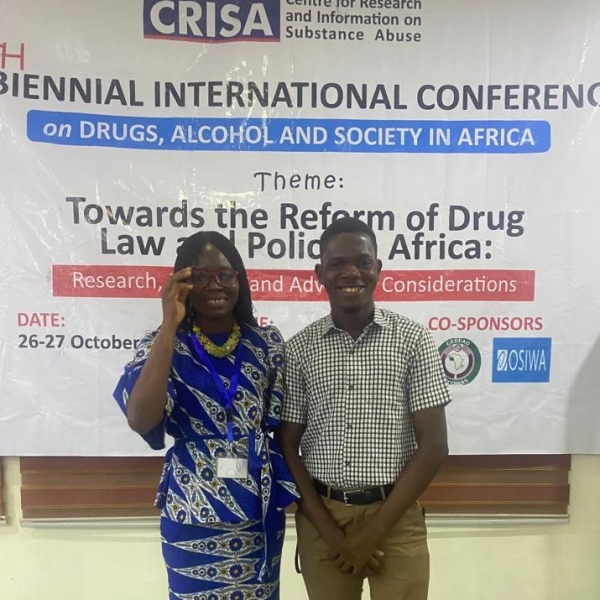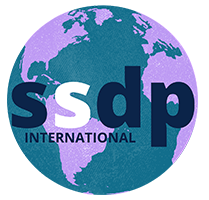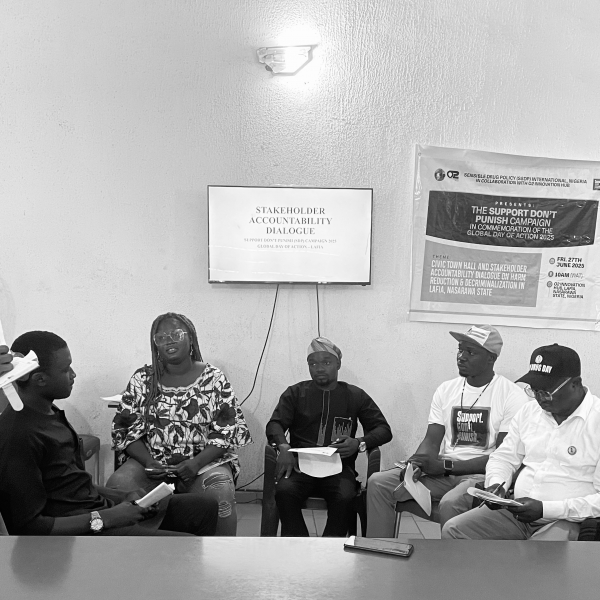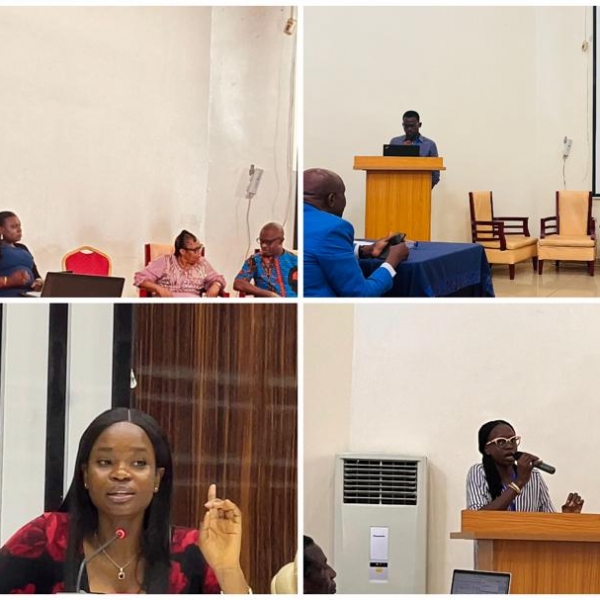My experience at the 14th Biennial CRISA conference in Abuja, Nigeria  

In 1991, the Centre for Research and Information on Substance Abuse (CRISA) began a biannual series of international conferences on "Drugs, Alcohol, and Society in Africa." The 14th conference in the series was held on October 26-27, 2022 in Abuja, Nigeria, with the theme: Towards the Reform of Drug Law and Policy in Africa: Research, Practice, and Advocacy Considerations. The conference was co-organized by the Economic Community of West African States (ECOWAS) and was funded by the Open Society Foundations/Open Society Initiative for West Africa (OSIWA) and the African Union Commission.
There were more than a hundred people in attendance at the conference, and they came from all over the world: Ghana, Cote D'Ivoire, Benin, Togo, Sierra Leone, Zimbabwe, Liberia, Gambia, South Africa, the United Kingdom, and of course Nigeria. Shortly after the opening remark of the Executive Director of CRISA, Professor Isidore Obot, and several goodwill messages by organizations and agencies such as the United Nations Office on Drugs and Crime (UNODC), The African Union Commission, Economic Community of West African States (ECOWAS), Federal Ministry of Health, National Agency for the Control of AIDS and the Chairman/Chief Executive of the National Drug Law Enforcement Agency (NDLEA). The keynote address was given by the ‘real drug czar’, Dr Ethan Nadelmann, founder and former Executive Director of Drug Policy Alliance, New York, USA.
Dr Ethan gave a succinct historical background of harm reduction. He stated clearly how harm reduction has transformed over the years from being a strategy not just applied to drug use but drug policy, SRHR, road accidents etc. The real drug czar pinpointed that there were basically two objectives of drug policy. These are to reduce the harms associated with drug use and to reduce the harms associated with counterproductive policy. When discussing drug policy, Dr Ethan underlined the importance of abandoning a punitive and restrictive stance. He also stressed the importance of learning from the mistakes made during the United States' alcohol prohibition era while formulating drug policy.
As a representative of Students for Sensible Drug Policy International, I joined other participants in both plenary and scientific sessions which cut across; cannabis policy, epidemiology of substance use, prevention and treatment of substance use, gender and demographic issues in drug use, drug use research, etc. Also, I had the opportunity to chair the fifth plenary session a critical public health perspective on tobacco harm reduction. My discussant included Dr Ethan Nadelmann, founder and former Executive Director of Drug Policy Alliance, Clive Bates – Director – Counterfactual Consulting Limited, Don Prisno Eliseo – Editor-in-Chief – Wiley Journal of Public Health Challenges, Axel Klein, – Senior Fellow – Global Drug Policy Observatory and Olusola Obajimi – Global Communications Director – International Network of Nicotine Consumer Organization.
The panel I chaired focused on the need to evaluate tobacco harm reduction critically from a public health perspective. Research has substantiated the fact that despite 15 years with the framework convention on tobacco control (FCTC) 1.1 billion of the world’s population still smoke, of which 80% of that smoking population live in low and middle-income countries (LMICs). Since a long time ago, smoking tobacco has been a public health problem. Even though a lot of resources have been put into WHO's FCTC, there is little or no convincing evidence that even successful efforts to enforce abstinence help people quit smoking. This calls for a need to re-engage and follow evidence-based approaches such as harm reduction in tobacco control. This plenary session was highly commended for the quality of the discourse by the experts on the panel and also for being the only session that focused on tobacco as a substance. There were seven panel discussion sessions and four scientific sessions during which more than thirty papers were presented. Evidence was presented at the conference sessions on the increasing prevalence of problematic use of licit and illicit substances, including among special populations in Africa; the personal and social costs associated with use; and the need to adapt and implement comprehensive, integrated, and evidence-based policies to address the drug problem in African countries, with consideration given to public health, human rights, social welfare, and security concerns.
Maria-Goretti Ane Loglo who is one of the advisory board members of Students for Sensible Drug Policy International and also the African consultant with the International Drug Policy Consortium chaired a session on drug policy issues focusing on the use of marijuana. Maria-Goretti also was one of the speakers that dissect cannabis policy and its social, political, and economic impact in different African countries. Maria reiterates that we need to prioritize and follow science over our feelings and morals when it comes to drug policy.
The conference came to an end and the recommendations made during each session were compiled into a communique. The CRISA conference was a great opportunity to discuss drug policy problems in Africa and make recommendations for the reform of drug policies in African countries. I look forward to more platforms and conferences to engage key stakeholders to push for sensible policies.



